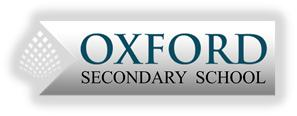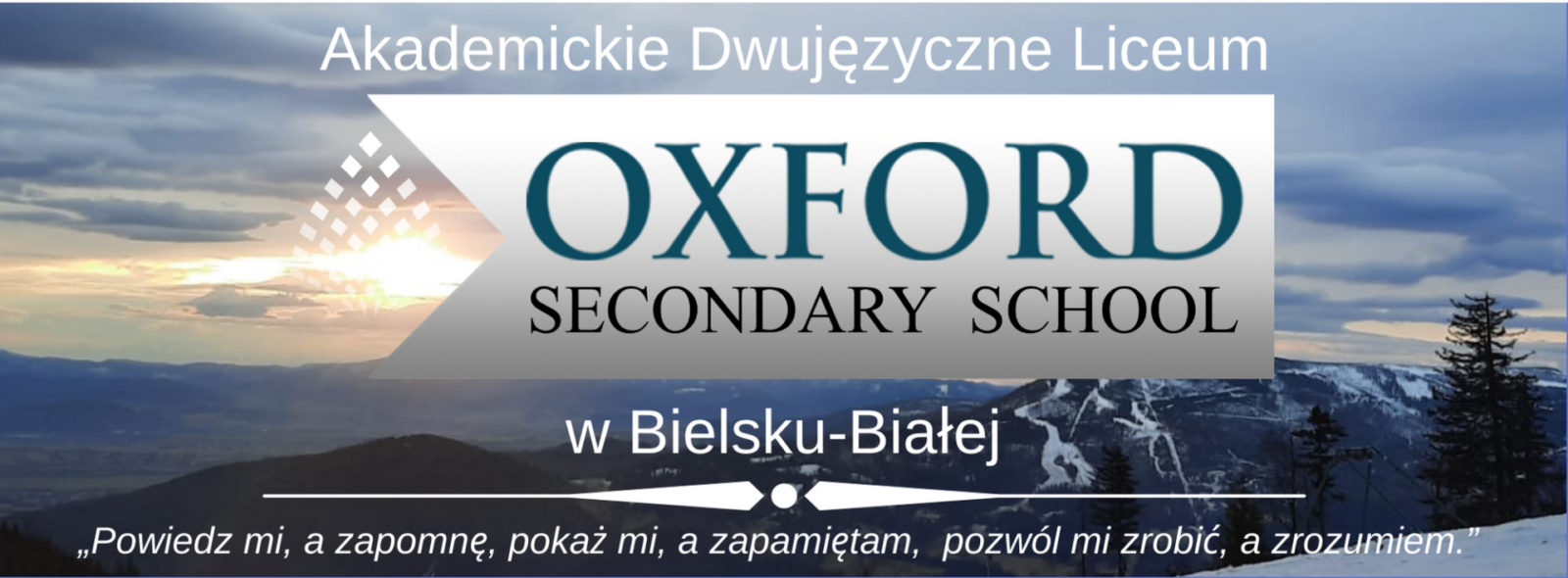Przewodnim motywem misji IB jest stworzenie lepszego i bardziej pokojowego świata poprzez edukację. W tym celu IB współpracuje ze szkołami, rządami oraz organizacjami międzynarodowymi i oferuje uniwersalny system edukacji, którego głównym założeniem jest wykształcenie mądrego, dociekliwego i troskliwego młodego człowieka, który aktywnie angażuje się we współpracę oraz służbę innym, a także okazuje zrozumienie i szacunek dla różnych światopoglądów wynikających z różnic kulturowych. Uzyskując dyplom matury międzynarodowej IB uczniowie mają te same szanse w ubieganiu się o miejsca na zagranicznych uniwersytetach. Przy ocenie egzaminów maturalnych stosuje się zewnętrzny, obiektywny i anonimowy system sprawdzania i oceniania prac, według takich samych kryteriów na całym świecie, co wyrównuje szanse wszystkich zdających.
Program matury międzynarodowej jest nauczany w jednym z trzech oficjalnych języków IB – angielskim, francuskim lub hiszpańskim. Językiem wykładowym w Akademickim Dwujęzycznym Liceum Oxford Secondary School jest język angielski, z wyjątkiem języka ojczystego.
Program nauczania organizacji International Baccalaureate składa się z następujących elementów:
1. 6 obowiązkowych przedmiotów, które uczniowie wybierają spośród następujących grup przedmiotowych:
- Grupa 1 – Studies in language and literature (język ojczysty)
- Grupa 2 – Language acquisition (język obcy)
- Grupa 3 – Individuals and societies (nauki humanistyczne i społeczne)
- Grupa 4 – Sciences (nauki ścisłe)
- Grupa 5 – Mathematics (matematyka)
- Grupa 6 – The Arts (sztuka)
Uczniowie wybierają 3 przedmioty na poziomie SL (standard level – poziom podstawowy) oraz 3 przedmioty na poziomie HL (higher level – poziom rozszerzony).
2. Elementy stanowiące trzon nauki (core) w Diploma Programme:
- Theory of knowledge (teoria wiedzy) – przedmiot, który ma na celu naukę podstaw epistemologii oraz krytycznego myślenia.
- Extended Essay (praca badawcza) – praca zawierająca około 4000 słów badająca wybrane zagadnienie związane z jednym z wybranych przedmiotów.
- CAS (Creativity, activity, service) – uczniowie realizują projekt, w którym rozwijają własne umiejętności w zakresie kreatywności, aktywności fizycznej oraz wolontariatu.
W ofercie przedmiotów realizowanych w ramach programu IB Diploma Akademickie Dwujęzyczne Liceum Oxford Secondary School oferuje następujące przedmioty w ramach grup przedmiotowych:
- Grupa 1 – Studies in language and literature (język ojczysty): Polish A Literature (język polski) na poziomie SL oraz HL (poziom podstawowy i rozszerzony)
- Language acquisition (język obcy): English B (język angielski) dla kontynuujących naukę na poziomie SL oraz HL
- Grupa 3 – Individuals and societies (nauki społeczne): Business management (zarządzanie biznesem), History (historia) oraz Geography (geografia) na poziomie SL oraz HL
- Grupa 4 – Sciences (nauki ścisłe): Biology (biologia), Chemistry (chemia), Physics (fizyka) oraz Computer science (informatyka) na poziomie SL oraz HL
- Grupa 5 – Mathematics: analysis and approaches, Mathematics: applications and interpretation (matematyka) na poziomie SL oraz HL
- Grupa 6 – The Arts (sztuka): Visual arts (sztuki wizualne) lub zamiast przedmiotu z grupy szóstej na ten moment do wyboru drugi przedmiot z grupy trzeciej lub czwartej. W ramach tej grupy uczniowie często wybierają drugi przedmiot z grupy Individuals and societies lub Sciences. Jest to powszechna praktyka w polskich szkołach, gdyż w liceach nie realizuje się przedmiotów typu taniec, film czy projektowanie graficzne i uczniowie najczęściej decydują się na zastąpienie przedmiotu z tej grupy drugim przedmiotem z grupy 2, 3 lub 4.
Nauka w Diploma Programme trwa dwa lata i przypada na dwa ostatnie lata nauki w liceum. W szkole tworzy się klasę IB DP, która przez dwa lata realizuje program nauczania organizacji IB. Do klasy IB przyjmuje się uczniów, którzy w ramach rekrutacji na sprawdzianie umiejętności językowych wykazali się znajomością języka angielskiego na poziomie B2 oraz posiadają fundamentalną wiedzę z przedmiotów, które wybrali do klasy IB, co potwierdzają ich wyniki edukacyjne. Zasady przyjęcia do klasy IB określa ściśle polityka przyjmowania uczniów do programu DP. Ze sprawdzianu predyspozycji językowych zwolnieni są uczniowie posiadający certyfikaty językowe potwierdzające znajomość języka angielskiego na poziomie B2 np. FCE.
Uczniowie wybierają 6 obowiązkowych przedmiotów, których uczą się przez dwa lata trwania programu, a następnie przystępują do egzaminu maturalnego z każdego z nich. Uczniowie wybierają po jednym przedmiocie z danej grupy. Istnieje możliwość zamiany przedmiotu z grupy 6 na inny przedmiot z następujących grup: Individuals and societies, Sciences lub grup językowych.
Uczniowie realizują trzy przedmioty na poziomie SL (standard level – poziom podstawowy) oraz trzy przedmioty na poziomie HL (higher level – poziom rozszerzony). Każdy przedmiot na poziomie SL jest realizowany w wymiarze 4 godzin lekcyjnych tygodniowo, a każdy przedmiot na poziomie HL jest realizowany w wymiarze 6 godzin lekcyjnych tygodniowo tak, aby zrealizować co najmniej 150 godzin lekcyjnych dla każdego przedmiotu na poziomie SL oraz co najmniej 240 godzin lekcyjnych dla każdego przedmiotu na poziomie HL w ciągu dwóch lat.
Wszystkie przedmioty, z wyjątkiem języka polskiego oraz języka obcego, jeżeli inny niż angielski, są nauczane w języku angielskim.
W ramach tzw. core elements (elementów rdzeniowych) programu DP uczniowie zobowiązani są ponadto do:
- realizacji przedmiotu Theory of Knowledge (teoria wiedzy) w wymiarze 2 godzin lekcyjnych tygodniowo, tak aby zrealizować 100 godzin lekcyjnych w ciągu dwóch lat;
- realizacji programu CAS (Creativity, activity, service) – Kreatywność, aktywność, wolontariat w ciągu 18 miesięcy od rozpoczęcia programu; uczniowie spotykają się z koordynatorem CAS raz w tygodniu na jednej godzinie lekcyjnej w celu omówienia ich aktywności związanej z realizacją tego programu;
- napisania pracy badawczej Extended Essay na około 4000 słów na wybrany temat spośród przedmiotów, które uczeń wybrał w programie DP, pod opieką nauczyciela-mentora.
O Extended Essay
Po ustaleniu tematu pracy z nauczycielem uczeń zbiera materiały do pracy, prowadzi badania naukowe i zobowiązany jest napisać Extended Essay w ciągu dwóch semestrów przestrzegając zasad uczciwości akademickiej i stosując wybrany styl cytowania. W tym czasie odbywa konsultacje w terminach ustalonych z nauczycielem-mentorem, którego obowiązkiem jest monitorowanie pracy i postępów ucznia. Celem Extended Essay jest między innymi rozwijanie przez ucznia umiejętności badawczych, wnioskowania i analizy, przeprowadzenia badań nad wybranym przez niego problemem, rozwijanie umiejętności krytycznego myślenia oraz nauka systematyczności i organizacji własnej pracy. Pracę tą uczeń zobowiązany jest złożyć w terminie określonym w kalendarzu szkolnym, który uczeń otrzymuje na początku nauki w programie. Kalendarz określa terminy oddawania poszczególnych elementów programu, które podlegają ocenie oraz ustnych egzaminów. Extended essay jest następnie przesyłany do IB w celu sprawdzenia i oceny. Zajęcia odbywać się będą od września do czerwca pierwszego roku nauki oraz od września do kwietnia drugiego roku nauki.
Egzaminy
W maju drugiego roku nauki uczniowie przystępują do egzaminów maturalnych. Egzamin przeprowadzany będzie na terenie szkoły zgodnie z procedurami IB. Egzaminy pisemne oceniane są zewnętrznie przez egzaminatorów IB, natomiast egzaminy ustne oceniane są wewnętrznie przez przeprowadzających je nauczycieli.
Z egzaminów maturalnych uczeń może uzyskać maksymalnie 45 punktów. Warunkiem otrzymania dyplomu jest uzyskanie co najmniej 24 punktów.

